Space Renaissance International Achieves Observer Status at U.N. COPUOS
Championing Space Development for Humanity
VIENNA, Austria – July 2, 2024 – Space Renaissance International (SRI) is proud to announce it has been granted provisional observer status for three years at the United Nations Committee on the Peaceful Uses of Outer Space (COPUOS). This milestone decision was achieved during the 67th COPUOS General Assembly held from June 19-28, 2024, in Vienna, Austria.SRI joins four other newly approved non-governmental organizations (NGOs) in receiving this esteemed status: the African Astronomical Society (AAS), the Global Satellite Operators Association (GSOA), the Outer Space Institute (OSI), and Space Data Association (SDA). After the three-year provisional period, SRI will be eligible to become a Permanent Observer.
“SRI unwaveringly supports the values and member states of UN COPUOS, along with fellow prestigious observer organizations such as the IAF, COSPAR, IAA, ESA, and EU“, said Professor Bernard Foing, President of SRI. ”Our SRI geographically diverse community, with renowned expertise in space techniques and humanities, approved a 5-year action plan in 2021, giving birth to the Space 18th SDG Space4All movement, to serve citizen development on Earth and Beyond.”
“I personally feel emotionally proud for SRI, as I co-organized the July 1999 Space Generation Congress at UniSpace III in Vienna, which led to SGAC Space Generation Advisory Council to UN, and many great results and follow-up progress. And I participated in multiple events with U.N. since 1995,” adds Professor Foing.
“This recognition by COPUOS marks a significant step in our mission to promote space development and its benefits for all of humanity,” said Adriano V. Autino, CEO and Founder of SRI. “We are honored to bring the perspective of space philosophy to this crucial international forum.”
“Of course, people know the benefits of satellite technologies on Earth’s surface, such as for example, GPS, climate monitoring, water management, and disaster recovery. What many people do not know, or yet fully comprehend, is the urgency to initiate civilian space development and civilization expansion into outer space,” Autino explained. “Our mission remains to advocate for this urgent expansionist view within the U.N. and in the broader public. We will continue to promote the global benefits of space.”
The 67th COPUOS General Assembly focused heavily on space sustainability and the role of space in achieving sustainable development goals. A key advance was the formation of the Action Team on Lunar Activities Consultation (ATLAC) by the Romanian delegation, with support from South Korea. This signaled growing international interest in collaborative lunar resource exploration and exploitation.
The assembly highlighted the potential of the incoming cislunar economy as a constructive and collaborative alternative to current geopolitical challenges. Discussions addressed major space initiatives like the Artemis Accords and the International Lunar Research Station (ILRS), indicating them as possible best practices.
SRI’s observer status at COPUOS will allow the organization and the Space 18th Sustainable Development Goal (SDG) Coalition members to contribute to critical space-related issues. This includes SRI’s significant progress in the ratification of an 18th SDG focused on space sustainability and the power of space to accelerate and ensure the success of all the other 17 SDGs. This initiative has garnered significant support from several delegates, in informal talks.
Ms. Aarti Holla-Maini, Director General of the United Nations Office for Outer Space Affairs (UNOOSA), expressed her appreciation for SRI’s commitment to bringing space philosophy into COPUOS discussions.
SRI extends its gratitude to its delegation at the 67th COPUOS General Assembly: Werner Grandl, Marie-Luise Heuser, Bernard Foing, and Adriano Autino.
Special gratitude goes to Robert Katz, Mikhail Baskov, Frank White, Gary Barnhard, Emeline Paat-Dahlstrom, and the entire Space 18th SDG Coalition for their invaluable previous and continued support. Most notably, they recently convened a well-received Pre-COPUOS Summit to assemble, assess, and aggregate recommendations for COPUOS General Assembly topics from the Coalition’s 82 international member organizations. An analogous follow-on Pre-General Assembly Summit will be held in person at U.N. Plaza in New York City, and virtually, on September 13, 2024, to coincide with and support the 79th session of the United Nations General Assembly (UNGA 79).
“This achievement is a testament to the collective effort of our global community,” Autino added. “We look forward to collaborating with UN COPUOS member states, space agencies, and other observer NGOs like the National Space Society, IAF, COSPAR, Moon Village Association, and Secure World Foundation in advancing space activities for the benefit of all humanity, including future space-based communities.”
Looking ahead, SRI plans to identify countries supportive of the Space 18th SDG proposal, continue to support COPUOS and its vital mission and increase public awareness of UNOOSA and COPUOS activities.
For more information about Space Renaissance International and its initiatives, please visit https://spacerenaissance.space.
About Space Renaissance International:
Space Renaissance International (SRI) is a global non-profit organization dedicated to promoting the peaceful civilian development and further exploration of outer space for the benefit of all humanity. SRI advocates for space philosophy and sustainable space development as key factors in addressing global challenges and securing a prosperous future on Earth and Beyond.
About Space 18th SDG:
The Space 18th SDG initiative, led by Space Renaissance International and the National Space Society, is spearheading and accelerating global efforts to establish a new Sustainable Development Goal focused on sustainable civilian space development and leveraging space technologies to accelerate the achievement of the existing 17 SDGs. This proposed goal recognizes the critical role of space in overcoming global challenges and ensuring a sustainable future for humanity both on Earth and beyond.
About U.N. COPUOS:
The United Nations Committee on the Peaceful Uses of Outer Space (COPUOS) was established by the General Assembly in 1959 to govern the exploration and use of space for the benefit of all humanity. It serves as the primary international forum for the development of laws and principles governing outer space activities, and for fostering international cooperation in space science and technology applications.
Join the Alliance of the 82 Co-promoters: https://spacerenaissance.space/sign-the-18th-sdg/
Join the Space Renaissance: https://spacerenaissance.space/membership/international-membership-registration/

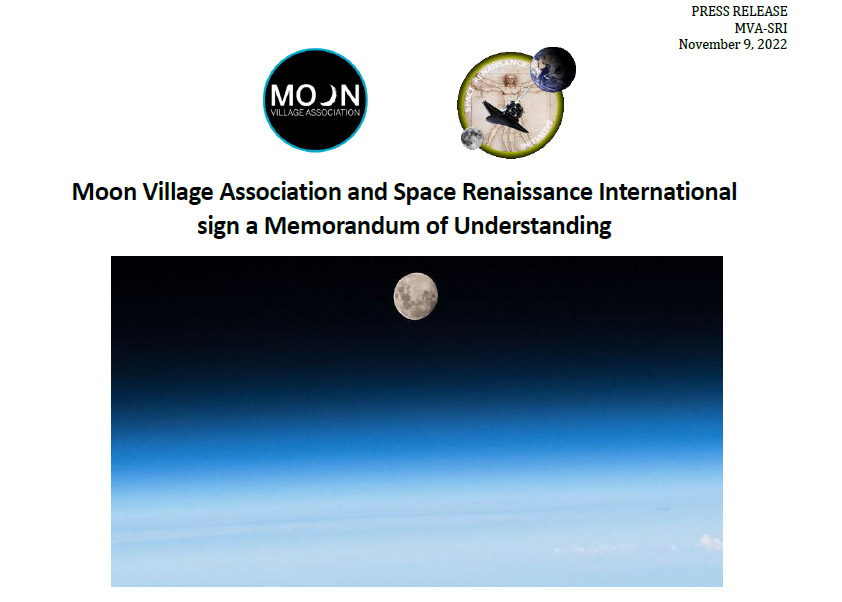
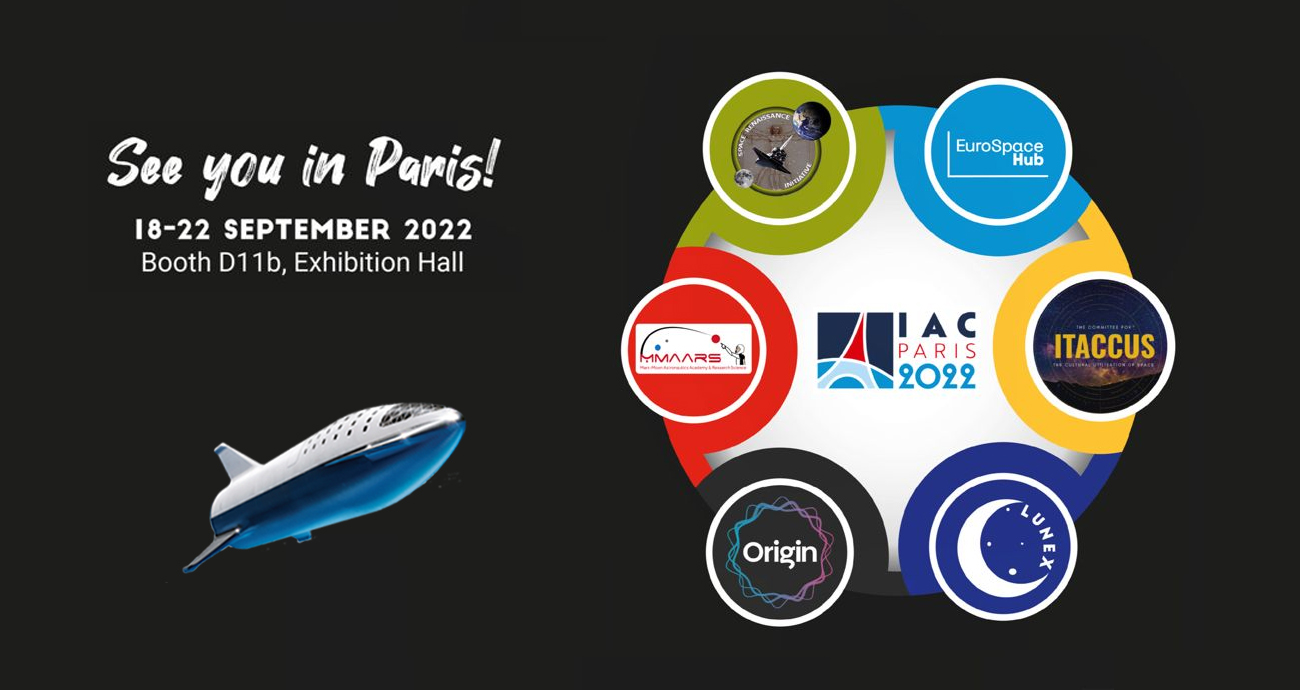

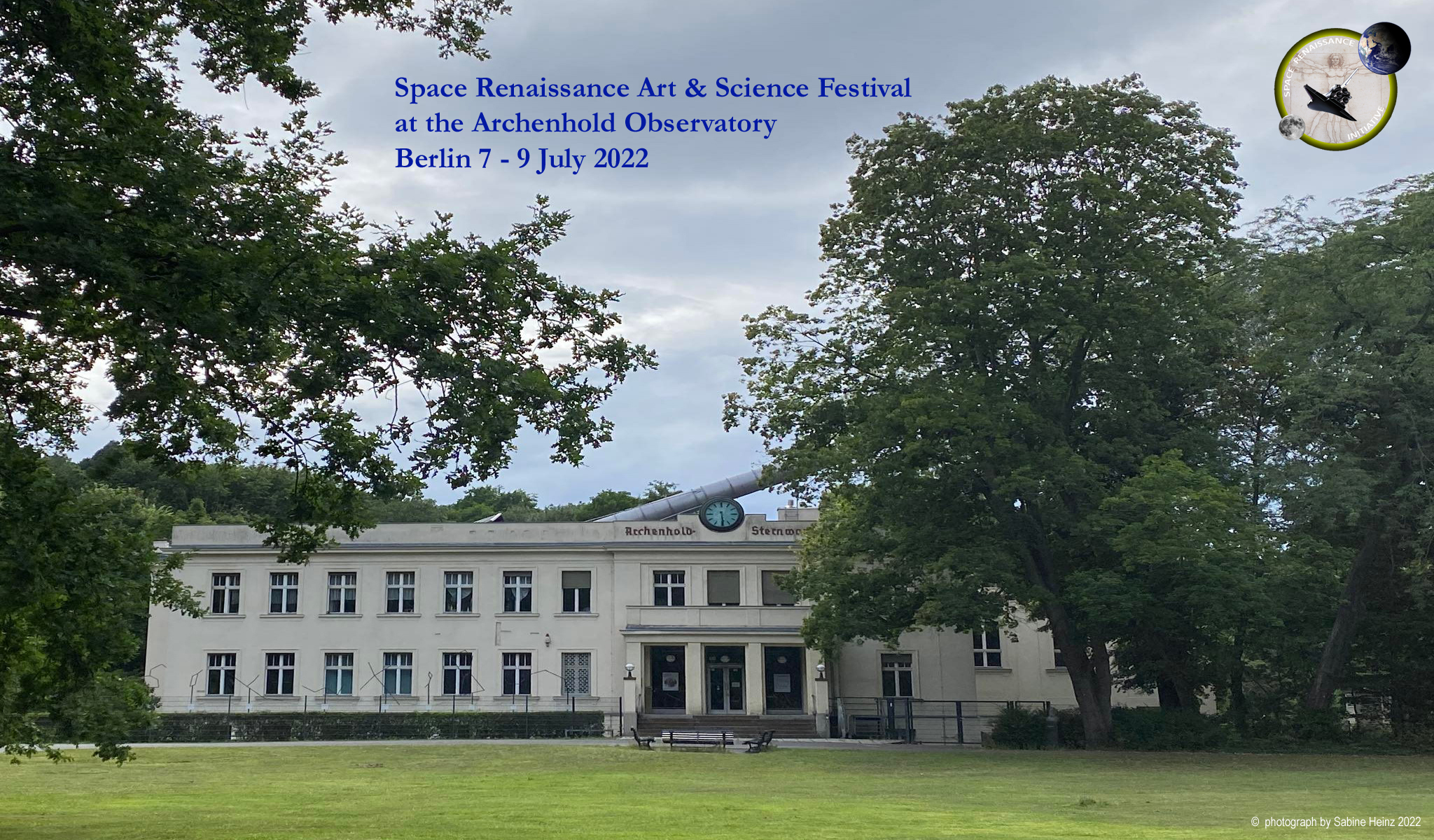


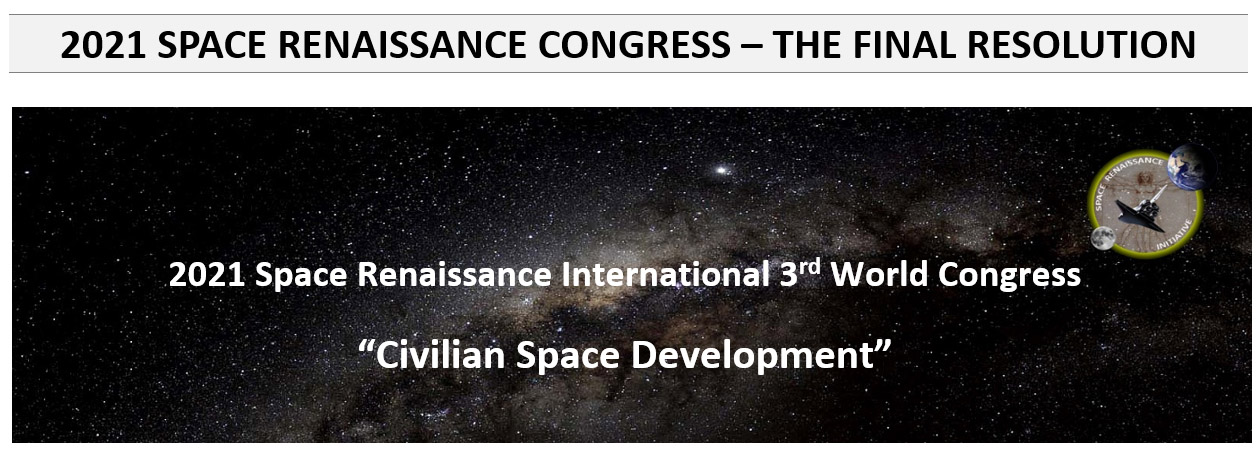


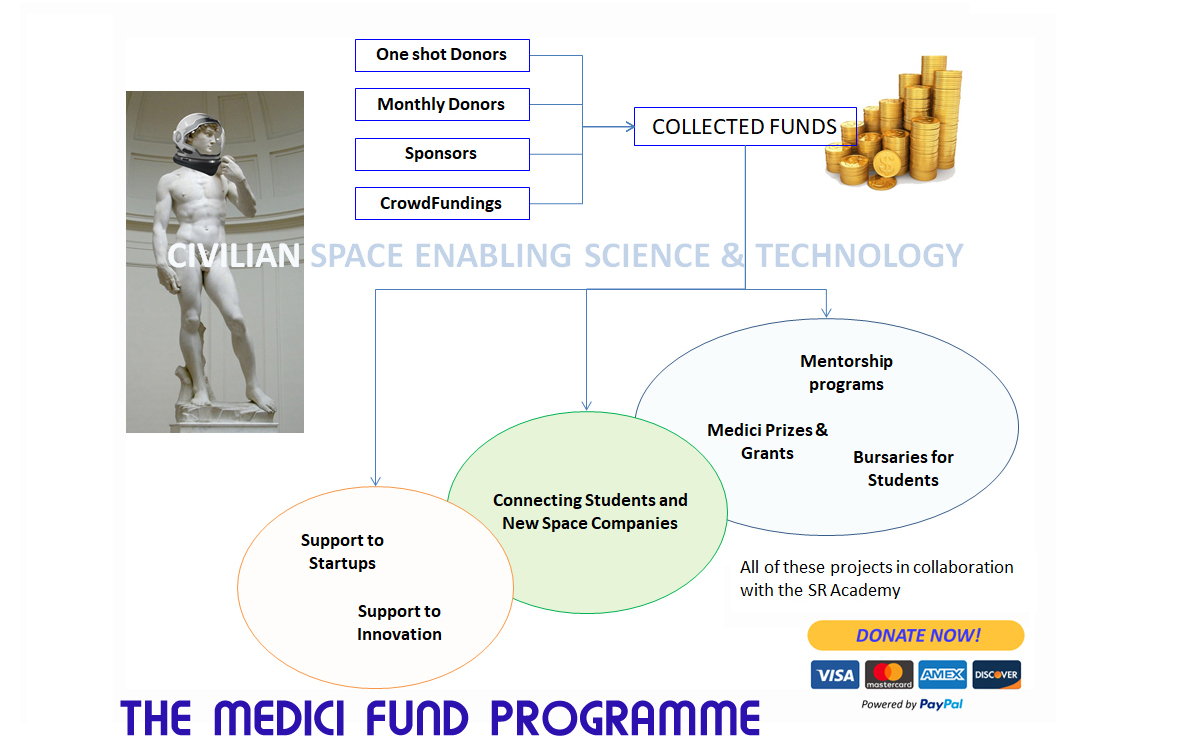




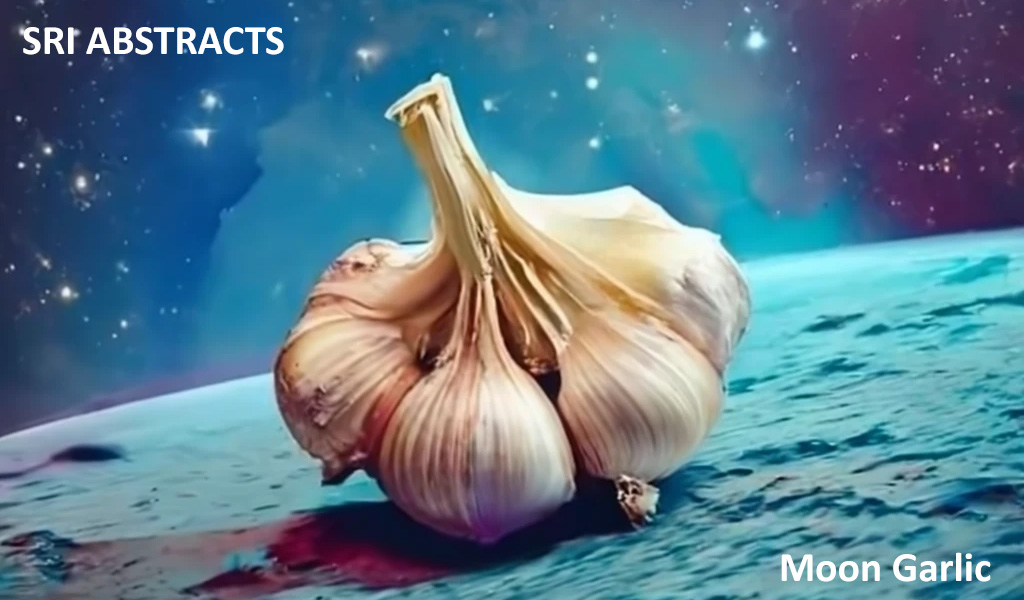





 Space Renaissance France (French Chapter of SRI)
Space Renaissance France (French Chapter of SRI)  Space Renaissance USA, Inc. (USA Chapter of SRI)
Space Renaissance USA, Inc. (USA Chapter of SRI) Space Renaissance (Italian Chapter of SRI)
Space Renaissance (Italian Chapter of SRI) Space Renaissance Academy
Space Renaissance Academy Space Renaissance Initiative Group
Space Renaissance Initiative Group